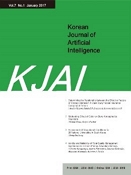- Log In/Sign Up
- E-ISSN2508-7894
- KCI
 E-ISSN : 2508-7894
E-ISSN : 2508-7894
MIN, Hyo-June
JEON, Kwang-Ho
KIM, Yu-Jin
LEE, Sang-Hyeok
KIM, Mi-Sung
JEON, Pil-Hyun
KIM, Daehong
BAEK, Cheol-Ha
LEE, Hakjae
Abstract
Although CT has an advantage in describing the three-dimensional anatomical structure of the human body, it also has a disadvantage in that high doses are exposed to the patient. Recently, a deep learning-based image reconstruction method has been used to reduce patient dose. The purpose of this study is to analyze the dose reduction and image quality improvement of deep learning-based reconstruction (DLR) on the adult's chest CT examination. Adult lung phantom was used for image acquisition and analysis. Lung phantom was scanned at ultra-low-dose (ULD), low-dose (LD), and standard dose (SD) modes, and images were reconstructed using FBP (Filtered back projection), IR (Iterative reconstruction), DLR (Deep learning reconstruction) algorithms. Image quality variations with respect to varying imaging doses were evaluated using noise and SNR. At ULD mode, the noise of the DLR image was reduced by 62.42% compared to the FBP image, and at SD mode, the SNR of the DLR image was increased by 159.60% compared to the SNR of the FBP image. Based on this study, it is anticipated that the DLR will not only substantially reduce the chest CT dose but also drastic improvement of the image quality.
- keywords
- Deep learning reconstruction(DLR), Ultra-low-dose (ULD), Computed tomography(CT)
- Downloaded
- Viewed
- 0KCI Citations
- 0WOS Citations













